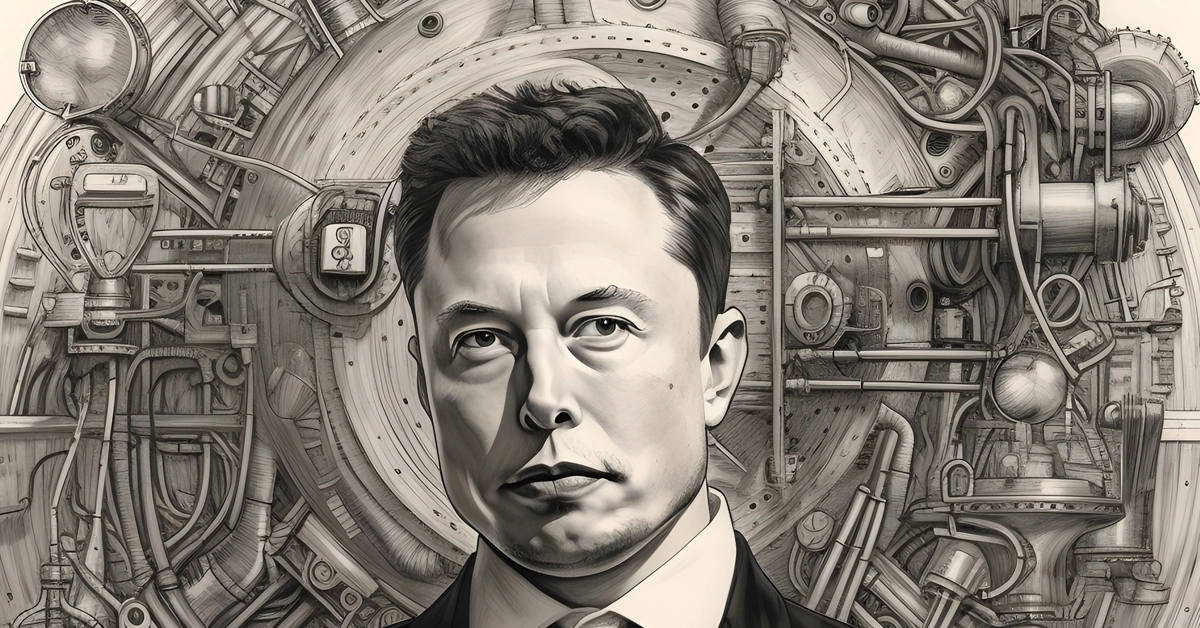The ongoing legal feud between OpenAI and Elon Musk has escalated dramatically, with OpenAI filing a countersuit against its former co-founder. This high-stakes legal battle highlights allegations of harassment, deceitful tactics, and an alleged “sham” takeover bid by Musk, who has since become one of the company’s most vocal critics. The case underscores the growing tensions within Silicon Valley as AI companies compete for dominance in a rapidly evolving market.
Background: The Origins of the Feud
OpenAI was founded in 2015 by Elon Musk, Sam Altman, and others with the ambitious goal of developing artificial intelligence for the benefit of humanity. Initially structured as a non-profit organisation, OpenAI aimed to ensure that AI advancements would remain accessible and ethical. However, Musk departed from OpenAI in 2018 amid disagreements over its direction and governance. Since then, OpenAI has transitioned to a for-profit model—a move that Musk has vehemently opposed.

The feud officially began in early 2024 when Musk filed a lawsuit against OpenAI, claiming that its shift to a profit-driven structure violated its founding principles. He alleged that OpenAI’s transition was detrimental to its original mission and sought to revert the organisation to its non-profit roots. While Musk later withdrew this lawsuit, he filed a revised complaint in August 2024, reiterating his concerns about OpenAI’s corporate framework.
Musk’s Alleged “Sham” Takeover Bid
In February 2025, Musk led an investment consortium that offered $97.4 billion to acquire OpenAI. According to OpenAI’s countersuit, this bid was not a genuine attempt to purchase the company but rather a calculated effort to disrupt its operations and fundraising initiatives. OpenAI’s legal filing describes the bid as a “sham” designed to undermine the organisation’s transition to a for-profit model, a critical shift for securing the $40 billion in funding necessary for its continued growth.
The countersuit alleges that Musk’s actions were part of a broader campaign to harm OpenAI and gain an unfair competitive advantage for his rival AI venture, xAI. This includes orchestrating public attacks on OpenAI through his social media platform X (formerly Twitter), where he commands an audience of over 200 million followers. Additionally, Musk is accused of making baseless demands for corporate records and engaging in vexatious legal claims aimed at stalling OpenAI’s progress.
OpenAI’s Countersuit: Key Allegations
OpenAI’s countersuit paints a picture of sustained harassment and bad-faith tactics allegedly employed by Musk. The legal filing states:
“Through press attacks, malicious campaigns broadcast to Musk’s more than 200 million followers on the social media platform he controls, a pretextual demand for corporate records, harassing legal claims, and a sham bid for OpenAI’s assets, Musk has tried every tool available to harm OpenAI” [1][4][5].
The lawsuit accuses Musk of attempting to derail OpenAI’s transition to a profit-driven model, a move deemed essential for maintaining competitiveness in the rapidly growing AI market. It also contends that Musk’s actions are designed to benefit his own company, xAI, at the expense of OpenAI and broader competition within the industry.
OpenAI CEO Sam Altman has publicly criticised Musk’s behaviour, stating that his actions are motivated by personal gain rather than any genuine concern for AI ethics or public interest. Altman has described Musk’s attempts as “relentless bad-faith manoeuvres” aimed at appropriating control over advanced AI technologies [2][3][6].
The Legal Stakes
The outcome of this legal battle could have profound implications for both parties involved. Suppose Musk succeeds in his lawsuit against OpenAI. In that case, the organisation may be forced to abandon its transition to a for-profit model, which could jeopardise its ability to secure critical funding and maintain competitiveness [2][6]. On the other hand, if OpenAI prevails in its countersuit, it could solidify its position as a leading player in the AI industry while holding Musk accountable for alleged damages.
A jury trial is scheduled to begin in March 2026 under US District Judge Yvonne Gonzalez Rogers. The judge has already denied Musk’s request for an injunction to temporarily halt OpenAI’s transition process [3][5]. Both parties are expected to present extensive evidence during the trial as they seek a resolution in one of Silicon Valley’s most contentious disputes.
Broader Implications for AI Governance
This feud highlights critical issues surrounding governance and accountability within the AI sector. As companies like OpenAI transition from non-profit frameworks to profit-driven models, questions arise about how these changes impact their original missions and ethical commitments. The case also underscores the competitive pressures driving innovation in AI, a field where technological advancements often outpace regulatory oversight.
Musk’s criticism of OpenAI reflects broader concerns about transparency and accessibility in AI development. He has argued that OpenAI’s shift undermines its founding principle of creating open-source technologies “for the benefit of humanity” [1][6]. However, OpenAI maintains that transitioning to a for-profit structure is necessary for sustaining innovation and ensuring long-term viability.
The legal battle between Elon Musk and OpenAI represents more than just a corporate dispute; it is emblematic of more significant tensions within the tech industry as organisations grapple with balancing ethical considerations against commercial imperatives. While both parties await their day in court, this case serves as a reminder of the complexities involved in governing transformative technologies like artificial intelligence.
As Silicon Valley continues to evolve, stakeholders must address critical questions about accountability, competition, and public interest issues brought sharply into focus by this high-profile feud.
Citations:
[1] https://mashable.com/article/openai-musk-lawsuit-countersuit-takeover-bid
[2] https://www.cnn.com/2025/04/10/tech/elon-musk-sam-altman-open-ai-countersue-intl/index.html
[3] https://www.bbc.co.uk/news/articles/cg4114271x2o
[4] https://uk.finance.yahoo.com/news/openai-countersues-musk-altman-feud-101212443.html
[5] https://www.cityam.com/openai-countersues-musk-as-altman-feud-escalates/
[6] https://www.axios.com/2025/04/10/openai-elon-musk-countersuit
[7] https://www.theregister.com/2025/04/10/openai_countersues_elon_musk/
[8] https://www.proactiveinvestors.co.uk/companies/news/1069530/openai-accuses-musk-of-harassment-in-lawsuit-1069530.html
[9] https://www.businessinsider.com/sam-altman-lawyers-roasted-elon-musk-new-lawsuit-filing-2025-4
[10] https://www.ndtv.com/world-news/openai-countersues-elon-musk-as-feud-deepens-8134734
[11] https://apnews.com/article/openai-chatgpt-countersues-elon-musk-31e3d238be1295ab23505b063693b58e
[12] https://www.cnbc.com/2025/04/11/ex-openai-staffers-back-musks-case-against-move-to-for-profit-entity.html
[13] https://dig.watch/updates/ai-feud-intensifies-as-openai-sues-elon-musk
[14] https://www.reuters.com/legal/openai-countersues-elon-musk-claims-harassment-2025-04-09/
[15] https://www.reuters.com/technology/artificial-intelligence/group-ex-openai-employees-back-musks-lawsuit-halt-openai-restructure-2025-04-12/
[16] https://www.nytimes.com/2025/04/09/technology/openai-elon-musk-lawsuit.html
[17] https://futurism.com/elon-musk-openai-web-lies
[18] https://electrek.co/2025/04/10/cracks-are-forming-in-elon-musks-armor-of-lies/
[19] https://www.latimes.com/entertainment-arts/business/story/2025-03-10/elon-musk-sam-altman-openai-xai
[20] https://openai.com/index/elon-musk-wanted-an-openai-for-profit/



